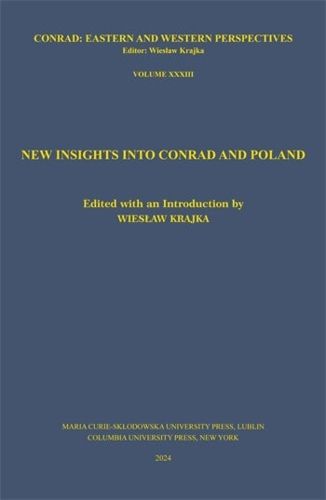Readings Newsletter
Become a Readings Member to make your shopping experience even easier.
Sign in or sign up for free!
You’re not far away from qualifying for FREE standard shipping within Australia
You’ve qualified for FREE standard shipping within Australia
The cart is loading…






Despite many publications on Joseph Conrad's Polishness (including those in some previous volumes of the series Conrad: Eastern and Western Perspectives) many issues in this academic field still need to be explained and illuminated. Following the opening text, which comments upon Polishness as studied in the volumes of this series published so far, the contributions included in New Insights into Conrad and Poland are arranged in the sequence of studies in biography (of the writer and members of his close family); Conrad's literary works in relation to Polish literature; Polish reception of his oeuvre (broadly understood, including adaptations and educational impact): as translations, as works of art, in schools and popular culture; Conrad's Polishness sensu largo (including Polish-Jewish experience and exilic feelings). The coda of the volume is constituted by a study where the view of Russia offered is antithetical to Polishness.
The thematic diversity of the volume determines its methodological variety. The applied approaches range from traditional biographical criticism, through literary analysis and interpretation, comparison-and-contrast of Conrad's literary works and their intertextual study with those by other authors and with another work of fine art, translation and adaptation studies, investigations of reception of literature and popular culture, to archetypal criticism and philosophical criticism.
The book is volume 33 of the series Conrad: Eastern and Western Perspectives, edited by Wieslaw Krajka.
$9.00 standard shipping within Australia
FREE standard shipping within Australia for orders over $100.00
Express & International shipping calculated at checkout
Despite many publications on Joseph Conrad's Polishness (including those in some previous volumes of the series Conrad: Eastern and Western Perspectives) many issues in this academic field still need to be explained and illuminated. Following the opening text, which comments upon Polishness as studied in the volumes of this series published so far, the contributions included in New Insights into Conrad and Poland are arranged in the sequence of studies in biography (of the writer and members of his close family); Conrad's literary works in relation to Polish literature; Polish reception of his oeuvre (broadly understood, including adaptations and educational impact): as translations, as works of art, in schools and popular culture; Conrad's Polishness sensu largo (including Polish-Jewish experience and exilic feelings). The coda of the volume is constituted by a study where the view of Russia offered is antithetical to Polishness.
The thematic diversity of the volume determines its methodological variety. The applied approaches range from traditional biographical criticism, through literary analysis and interpretation, comparison-and-contrast of Conrad's literary works and their intertextual study with those by other authors and with another work of fine art, translation and adaptation studies, investigations of reception of literature and popular culture, to archetypal criticism and philosophical criticism.
The book is volume 33 of the series Conrad: Eastern and Western Perspectives, edited by Wieslaw Krajka.